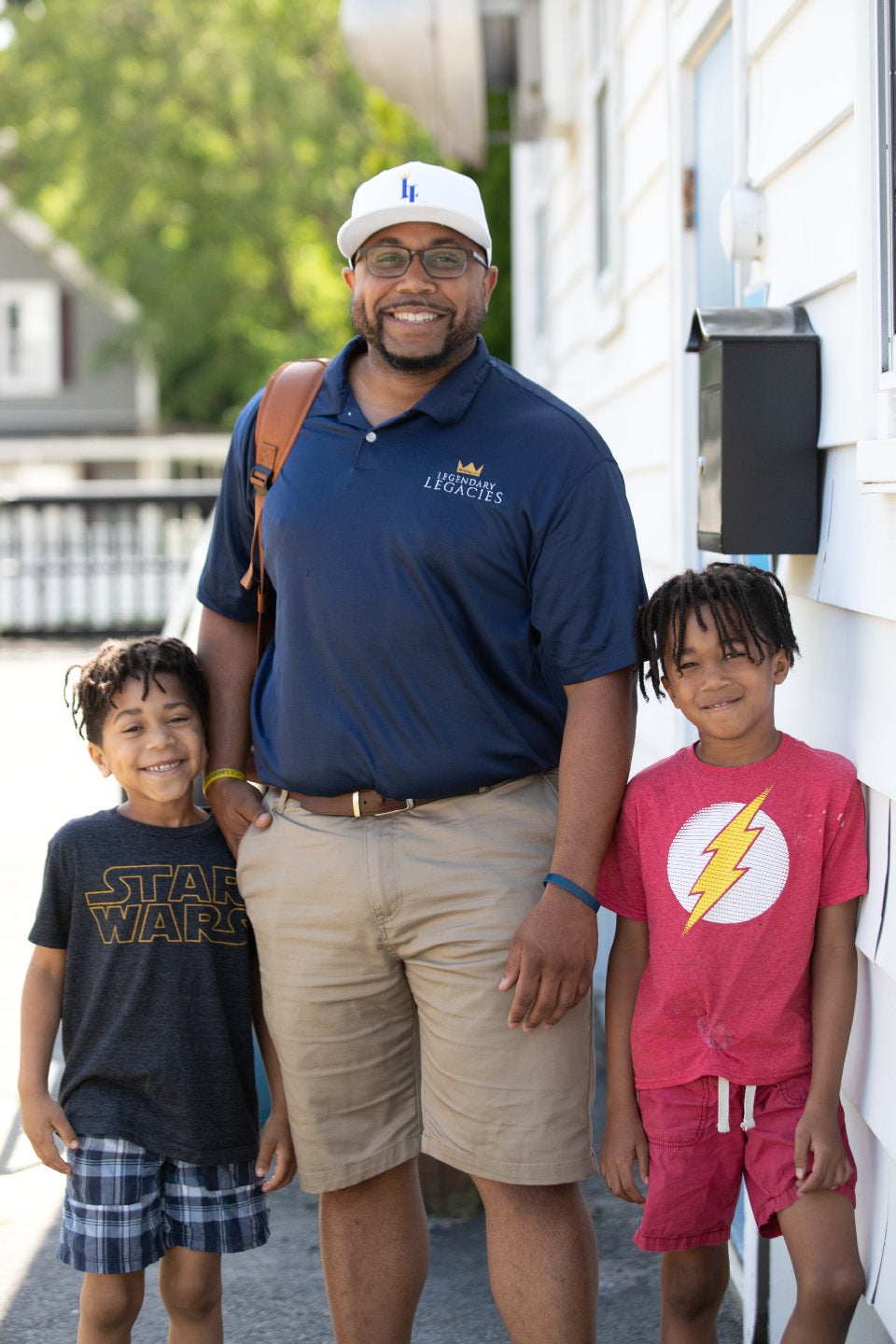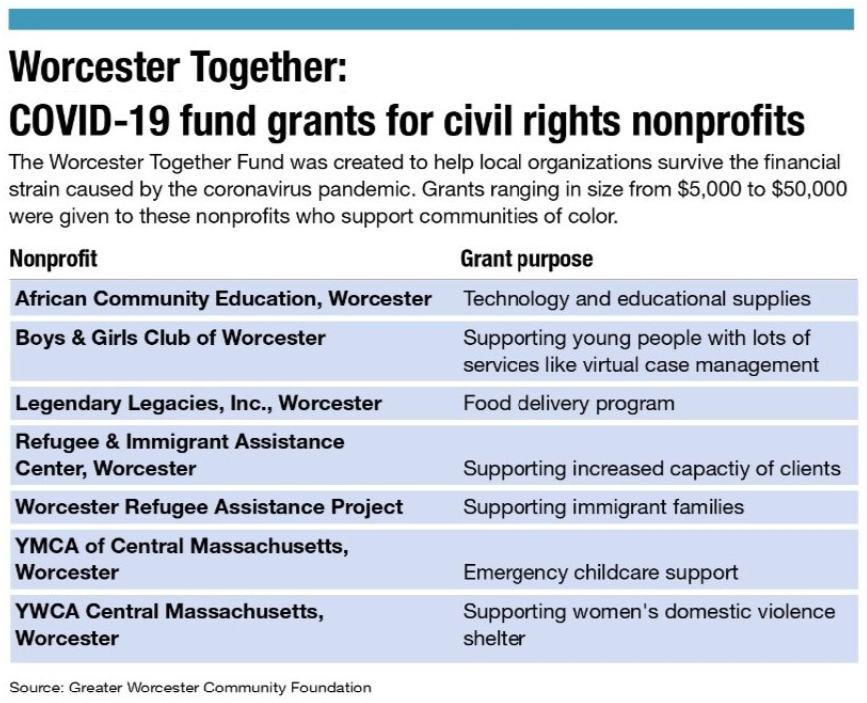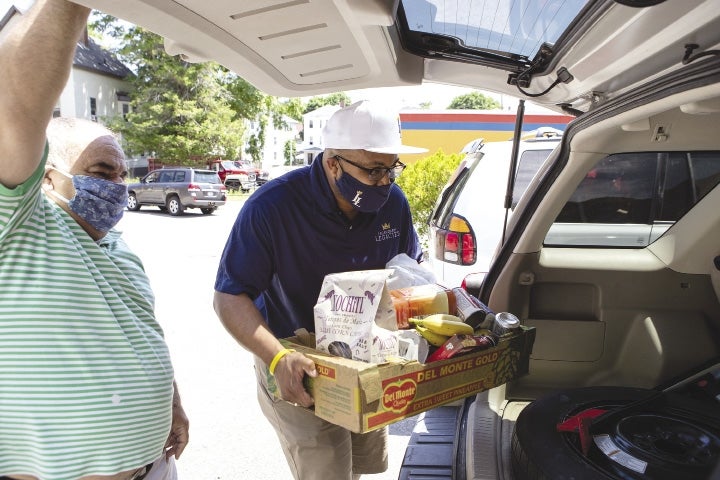In the month following the police killing of Minneapolis resident George Floyd, national civil rights, social justice and Black advocacy organizations like Black Lives Matter and protestor bail funds saw surges in donations, reaching a cumulative nine figures.
Get Instant Access to This Article
Subscribe to Worcester Business Journal and get immediate access to all of our subscriber-only content and much more.
- Critical Central Massachusetts business news updated daily.
- Immediate access to all subscriber-only content on our website.
- Bi-weekly print or digital editions of our award-winning publication.
- Special bonus issues like the WBJ Book of Lists.
- Exclusive ticket prize draws for our in-person events.
Click here to purchase a paywall bypass link for this article.
In the month following the police killing of Minneapolis resident George Floyd, national civil rights, social justice and Black advocacy organizations like Black Lives Matter and protestor bail funds saw surges in donations, reaching a cumulative nine figures.
While Central Massachusetts nonprofits haven’t seen nearly the same size surge, the extra attention given to racial equity efforts has led to a small uptick in private donations and an effort by the Greater Worcester Community Foundation to fund anti-racism causes.
“In addition to the public work that we’ve done, we are connecting behind the scenes with groups and organizations that are interested in issues with challenges of inequity community wide,” said Jonathan Cohen, GWCF vice president for programs and strategy.
As the outrage over the killing of Floyd and other unarmed Black people has turned into daily nationwide protests and increased organization around racial equity, a key to keeping the efforts going will be sustained funding for those nonprofits and other groups advocating against institutional racism.
The Worcester branch of the NAACP has received two $5,000 donations since Floyd’s death on May 25 – from the Worcester Railers Hockey Club and Workers Credit Union of Fitchburg – far above the few thousand dollars the organization usually has, said First Vice President Fred Taylor.
We’re “not used to getting a lot of funding,” said Taylor. “So [these donations] have created an opportunity for us.”
One of these donations was given to increase educational purposes, and the other is to directly support the branch. Membership at the NAACP Worcester chapter increased 20% in June, as 30 new members joined.
Grassroots organizations looking for funding
The national spike in donations to Black advocacy groups largely went to large nonprofits like Black Lives Matter, which has established a $12-million fund for organizations fighting institutional racism, according to The Seattle Times. Or money went to local organizations where killings happened.

There's now a push for more funding in Massachusetts, including from the Black Economic Council of Massachusetts, which has challenged state business to commit up to $1 billion to reduce racial inequities over the next decade.
Worcester nonprofit Legendary Legacies is hoping to build its budget using the momentum created by the anti-racism movement, although it has yet to see a donation influx, said Co-Founder Ron Waddell.
“We’re looking at how we continue this going. It’s been really impactful for the young men who have historically have been labeled, or even see themselves, as a liability for the community to see themselves as assets has been transformative,” said Waddell.
Legendary Legacies focuses on helping men ages 17-24 become productive citizens through mentoring programs, life skills development, community outreach, case management, and family support services. While its mission is not strictly focused on the Black community, most of its clients are men of color, and it is one of a handful of Central Massachusetts nonprofits run by a Black professional.
Waddell founded Legendary Legacies in 2018 and started receiving enough funding through the Worcester Community Action Council at the start of 2020 to make running the nonprofit his full-time job. The organization has a $97,000 annual budget, but Waddell would like to grow that to $210,000.

About 80% of that budget is state funded and the rest comes from foundations, donors, and churches. Since the WCAC funding is so new and the state is looking at budget cuts in the wake of the coronavirus pandemic, Waddell is worried about the stability of his budget.
“Because we are primarily grant funded … we are unsure of what we’re going to be dealing with as far as when those budget cuts come,” said Waddell. WCAC “proposed to us an amount that would get us to the end of this calendar year.”
As a small organization, Legendary Legacies has had a difficult time breaking into other sectors to share the importance of the work the nonprofit is doing, Waddell said. With the new attention around efforts helping the Black community, Waddell is hopeful.
“It’s being about engaging other funding streams,” Waddell said. “We’re in a great limbo period right now not knowing what our future will look like.”
Legendary Legacies did receive $10,000 from the Worcester Together Fund, run jointly by the GWCF, United Way of Central Massachusetts and the City of Worcester. Legendary is using the funds for its grocery delivery program to Black communities and the elderly.
“Fortunately for us we were able to receive a generous grant from the Worcester Together Fund,” said Waddell, “We were flexible enough to adapt quickly with COVID-19 as well.”
Large organizations helping local ones
The Worcester Together Fund was created in the wake of COVID-19 to provide grants and resources to organizations to cope with this pandemic, which has disproportionately impacted communities of color.
Barbara Fields, president and CEO of the GWCF, said there has been an outpouring of support for the COVID-19 Fund. GWCF, which typically distributes $7 million in grants to Central Mass. organizations annually, saw how Black communities were disproportionately affected by the pandemic.
“COVID-19 is exposing the health and economic racial inequities in our community,” said Fields. “As a fund we have been thoughtful, listened, and try to be using the equity lens in the delivery of resources.”
Beyond the Worcester Together Fund, GWCF in the wake of Floyd’s killing decided to use a portion of its community, quick turnaround grant funding specifically for the immediate and emerging need of civil rights action.
GWCF has received 43 applications for these racial equity focused grants, providing funding of up to $2,000 each.
Though GWCF has dedicated portions of its budget to racial equity, it has not seen specific donations for civil rights causes. Some donors have called looking for more information about what GWCF is doing, but no donations have labeled for this cause have come in yet.
YWCA Central Massachusetts, which advocates fighting racism as part of its mission, is utilizing its resources to help other local nonprofits without its scale.
Though YWCA has not received donations specific to civil rights, it partners and serves as fiscal agent to organizations like Massachusetts Women of Color Coalition and Coalition for a Healthy Greater Worcester.
“We are larger and have more capacity than many very small grassroots organizations,” said the YWCA Executive Director Linda Cavaioli. We “lend out our resources to make sure that organizations doing the work have the resources they need if we have the opportunity to assist them with that.”
CORRECTION: A previous version of this story incorrectly said the Greater Worcester Community Foundation gives out $110 million in grants annually. The correct number is about $7 million.

